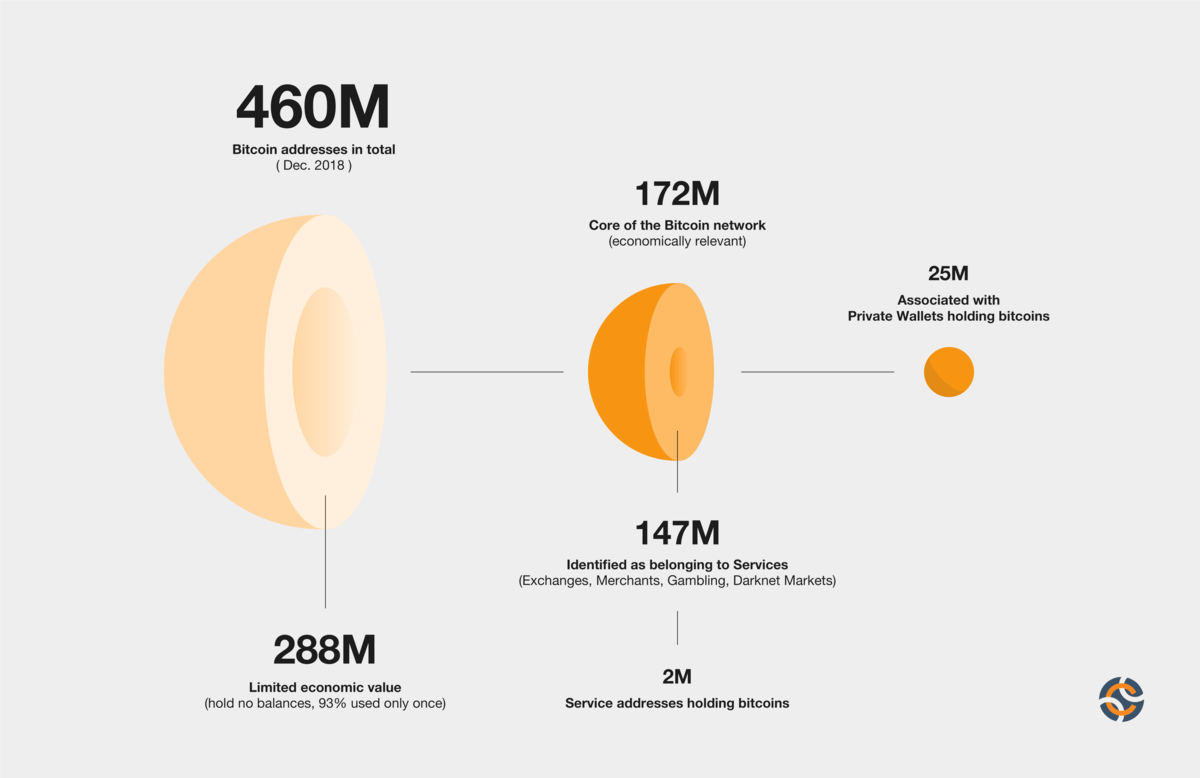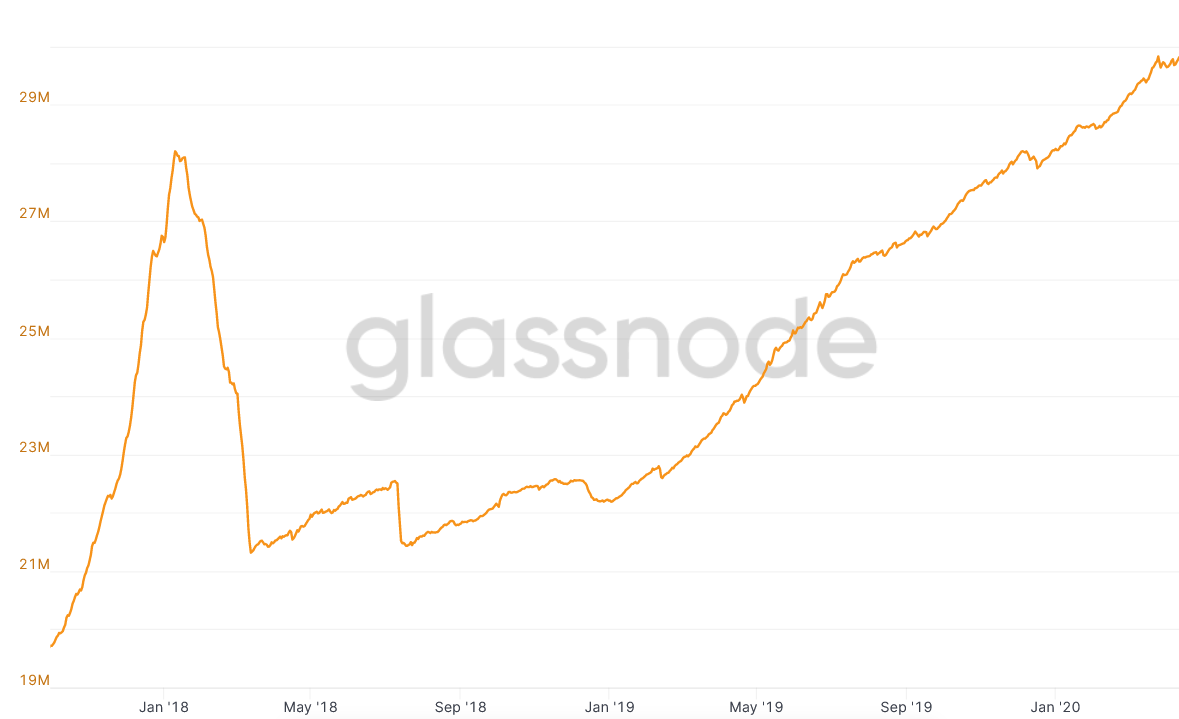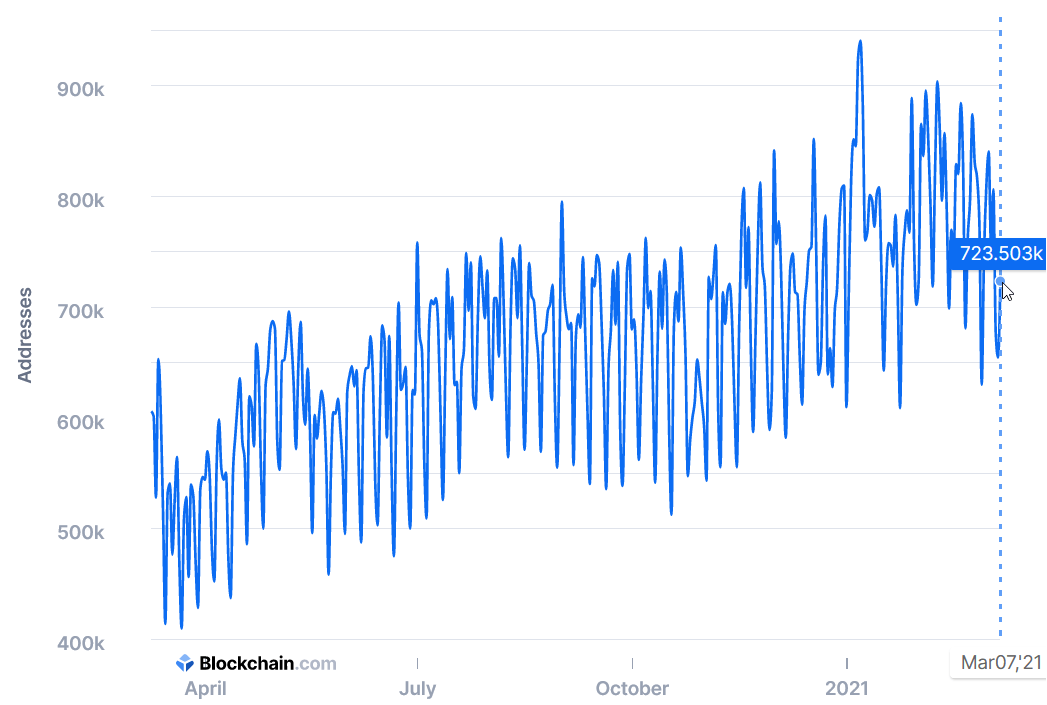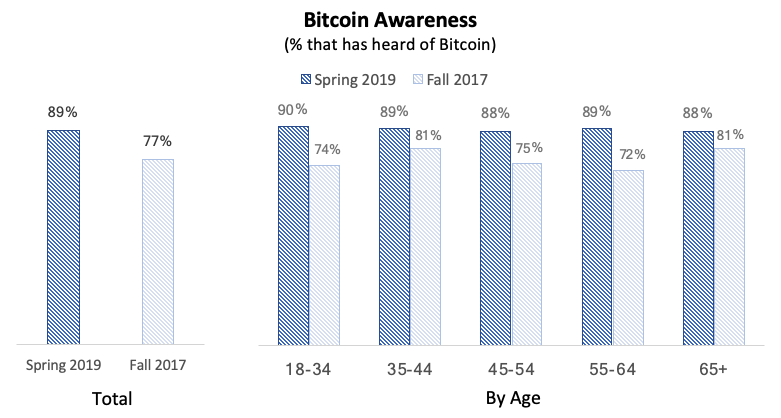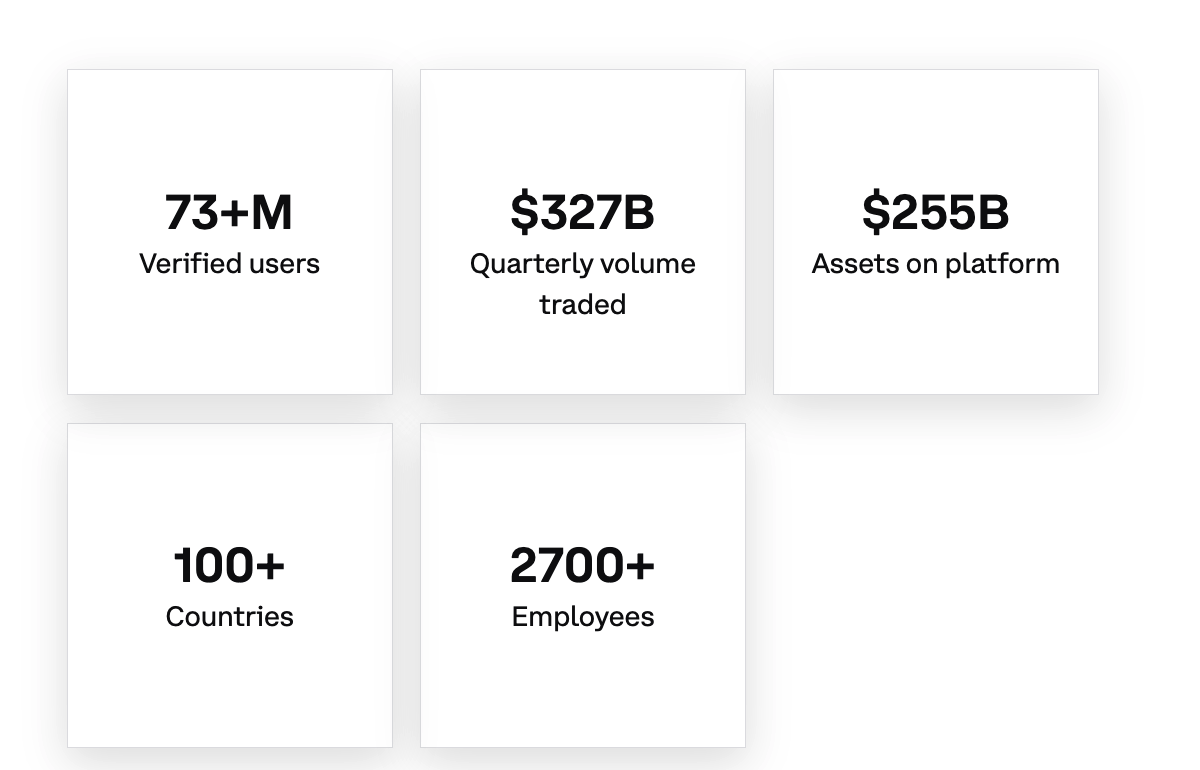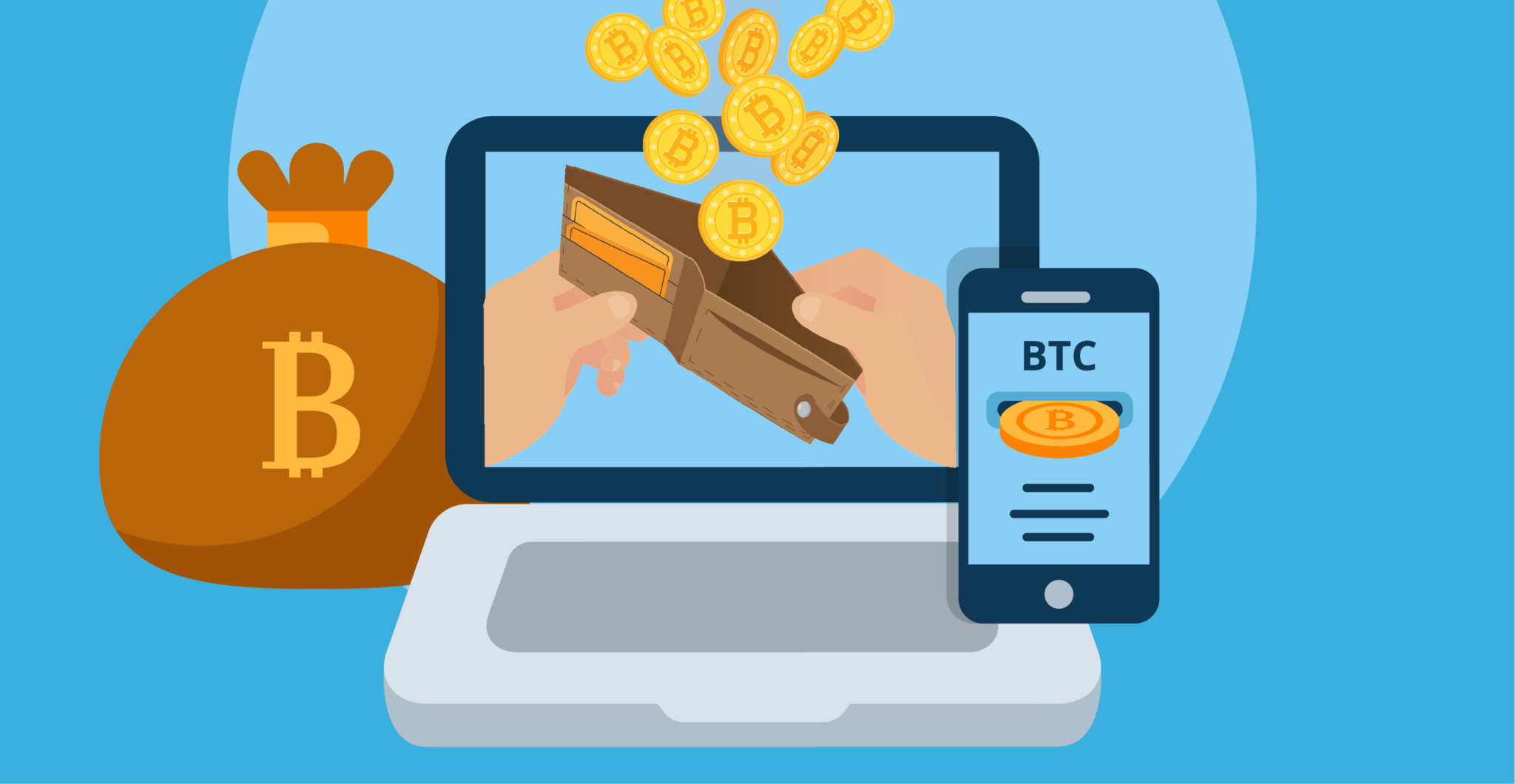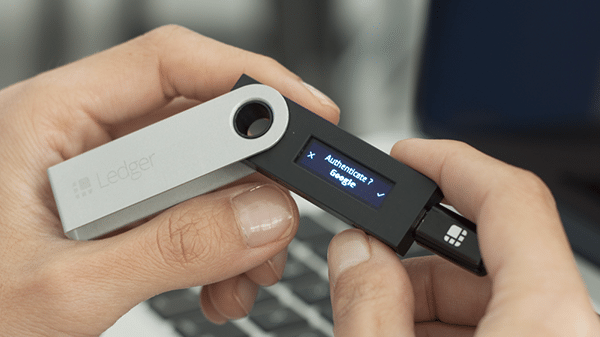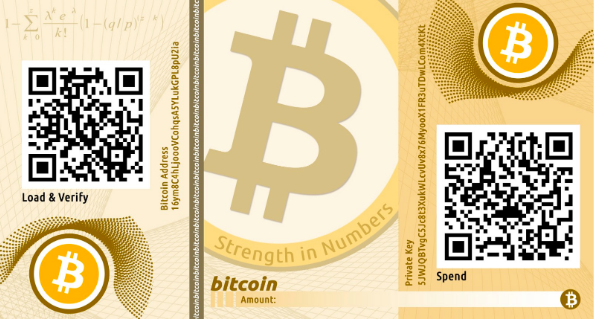- How Many Bitcoin Users Are There?
- How Many People Own Bitcoin?
- How Many Daily Users of Bitcoin?
- How Many Bitcoin Wallets Are There?
- How Many People Know About Bitcoin?
- How Many Users Does Coinbase Have?
- How Many Believe People Will Be Using Bitcoin in the Next 10 Years?
- How Many Bitcoin Traders Are There?
- What is Bitcoin’s User Growth?
- How Many Users Does Ethereum (ETH) Have?
- How Many Users Does Dogecoin (DOGE) Have?
- Which Countries Have Banned Bitcoin Users?
- China
- Russia
- Thailand
- 12 Best Bitcoin Wallets to Store Your Coins Safely
- In this article we present the best Bitcoin wallets, for ultimate security and convenience.
- What is a Bitcoin wallet
- How a bitcoin wallet works
- How to choose the best Bitcoin Wallet?
- 1. Best online wallet – Blockchain.com
- What can you do with Blockchain wallet?
- How to create a blockchain.com wallet
- 2. Best desktop wallet – Armory
- What makes Armory the best option?
- How to set up your Armory wallet
- 3. Best Hardware wallet – Ledger Nano S
- Why should you choose a Ledger Nano S?
- Setting up your Ledger Nano S device
- 4. Best Paper wallet – Bitaddress
- What makes paper wallets worth considering
- Creating a paper Bitcoin wallet
- Other great contenders for the title
- Which of the best Bitcoin wallets should you pick?
- Wrapping up
- Best Bitcoin wallets – Frequently asked questions
- What is a Bitcoin wallet address?
- What is a Bitcoin wallet private key?
- What are the cheapest Bitcoin wallets (hardware wallets)?
- What is the safest and most secure Bitcoin wallet?
- Are Bitcoin wallets safe & secure?
- Which Bitcoin wallet has the lowest fees?
- Why does my Bitcoin wallet contain multiple addresses?
- Can a bitcoin wallet be hacked?
- Can Bitcoin wallets be traced?
- How can you create a Bitcoin wallet?
How Many Bitcoin Users Are There?
How Many People Own Bitcoin?
No one will ever know.
The most common method of estimating the number of Bitcoin owners is look at the amount held in different addresses.
In the image below, this idea is illustrated.
On the left is a ball representing all 460 million bitcoin addresses to ever have a balance greater than 0.0 BTC.
Of those, 288 million hold no bitcoin in them at all today.
The remaining 172 million represent the bitcoin addresses that make regular bitcoin transaction.
Of those, 147 million belong to exchanges, bitcoin services, merchants, or other kinds of market actors.
Only the remaining 25 million addresses are believed to be economically active wallets that belong to private people on the network.
There are three main issues with this method:
- One person can have many address and wallets. One person, for example, might have 1 BTC on his iPhone wallet and .5 BTC on his laptop. If we treated each address as a person, this would count as two people when it’s really one. Many people own hundreds of addresses and 3-10 different wallets.
- Services can hold bitcoins in one address that belong to many people. Bitfinex, for example, holds 100,000+ bitcoins in one address. Bitfinex is a Bitcoin exchange with millions of customers. If we treat each address as a person, this would be considered one person but might really represent thousands of peoples’ bitcoins. Below is one of Bitfinex’s wallets — it holds over 6,000 BTC right at any given time.

The second common method to estimate the number of owners, is to look at exchanges and check the number of accounts.
Some exchanges tell you their user counts. Others require guessing, either by looking at their trading volume or by reporting their visitor counts.
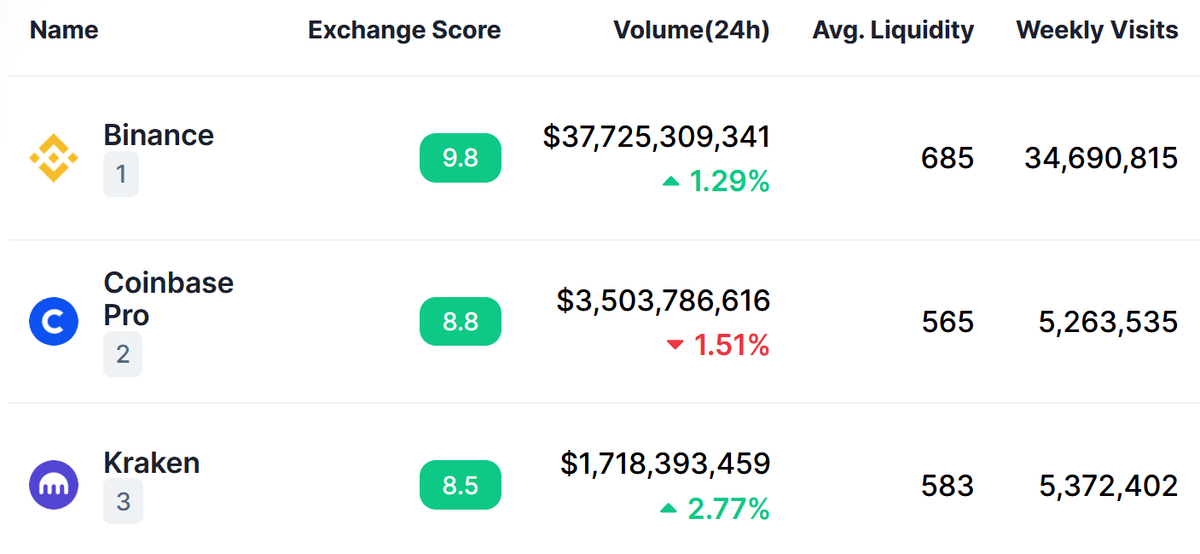
There are four main issues with this method:
- Inactive accounts. Some customers may open an exchange, buy bitcoin, and sell it later. This still counts as an account in the exchange’s data, but the account doesn’t actually own any bitcoin.
- Other coins. Many exchanges offer other cryptocurrencies. A user could sign up and buy only litecoin, but not bitcoin.
- Multiple accounts. A user can have unlimited exchange accounts. One, for example, might have an account with Coinbase, Kraken, and Gemini.
- Volume and visitor counts on some exchanges are faked by the exchange to appear bigger than they are.
One 2019 survey showed that 9% of the world’s population own Bitcoin. The age breakdown can be found below:

Another study found that about 5% of Europeans own bitcoins (37 million owners).
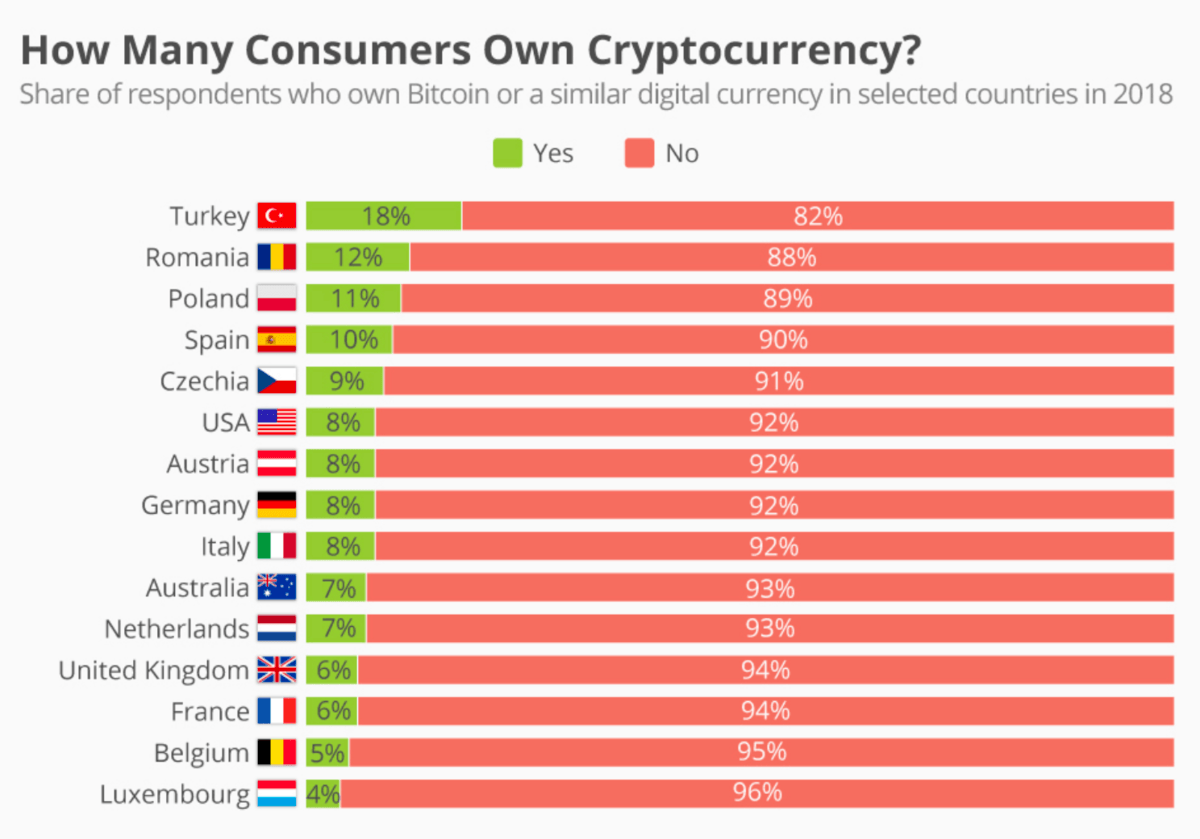
Just these two studies together would put the total number of BTC owners in America and Europe at
67 million combined. But there are only
20.5 million Bitcoin addresses with more than $1 worth of bitcoin.
So, the total number of people who own Bitcoin depends on how we want to define «own». If owning bitcoin means storing at least $1 worth of it it in a Bitcoin wallet you own, there can’t be more than
20.5 million owners.
For instance, the chart below shows how many addresses store ANY bitcoin at all.
But, if owning bitcoin includes storing ANY bitcoin in a centralized exchange or wallet, the numbers published by the surveys above start to seem reasonable. And the truth is, most owners of bitcoin likely do store their coins on centralized services.
25 million cryptocurrency traders outside the USA & Europe, it seems quite likely there are over 100 million owners of bitcoins.
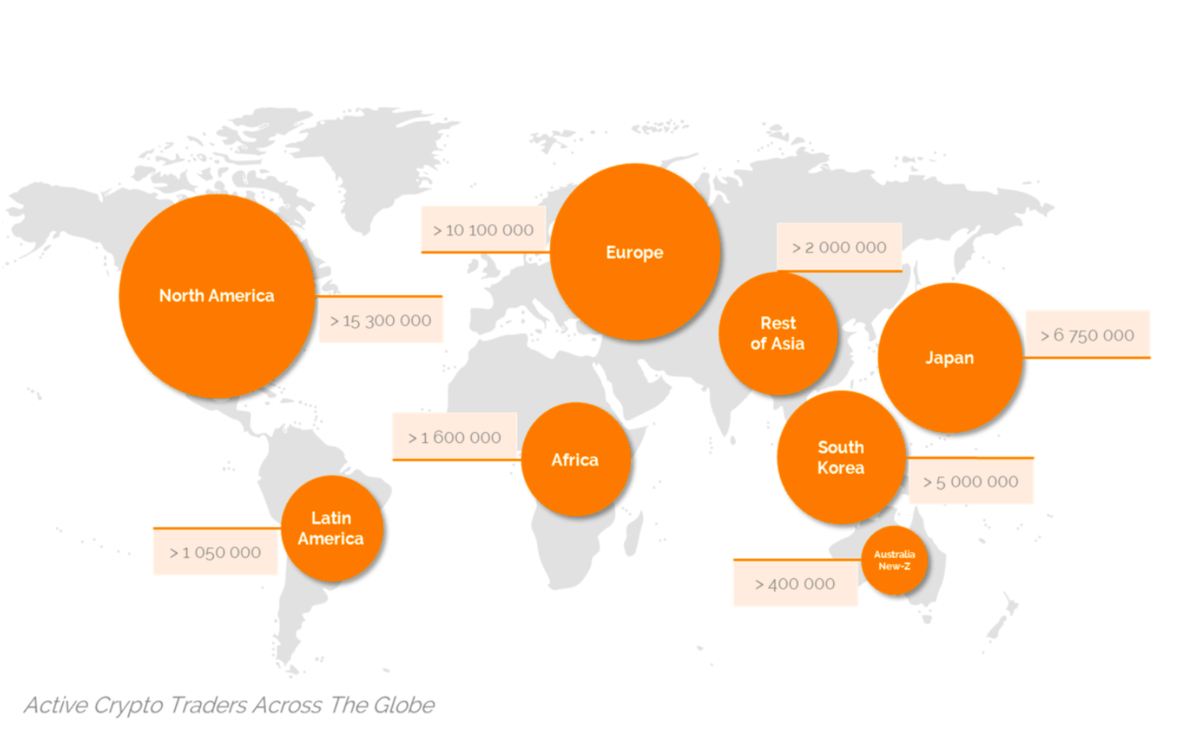
If true, it means about 1.3% of the world’s population owns bitcoin.
How Many Daily Users of Bitcoin?
This section discusses on-chain Bitcoin users. It does not include transactions taking place on exchanges or centralized services.
The Bitcoin network processes about 300,000 transactions per day. This number is deceiving, since one transaction can have multiple recipients.
There are only between 400,000 and 800,000 active addresses per day. This means there are, likely, 300,000 — 500,000 unique users either sending or receiving Bitcoin per day.
Kevin Rooke also offers some interesting data points on total number of days that exceed 1,000,000 active addresses.
In March of 2021, daily active addresses dropped to around 720,000 active addresses.
This is all despite a rising price, indicating that people are not moving funds around and are perhaps choosing to hold their positions to acquire deeper gains.
Note: Many people use Bitcoin daily by saving. A user who has money parked in Bitcoin is «using» it for investing or saving, but isn’t necessarily making transactions every day. This is why we also have to look at the number of bitcoins in wallets.
How Many Bitcoin Wallets Are There?
No one will ever know.
We first have to define «bitcoin wallet». A wallet with bitcoins currently stored? Does a wallet that received bitcoins, sent them, and is now empty count as a wallet? Do exchanges that allow you to send/receive Bitcoins count as wallets?
Coinbase claims to have more than 35 million accounts, while Blockchain.com claims to have 53 million wallets. Together, that’s at least
75 million wallets. There are hundreds of more wallets with private data. We also already concluded there are likely over 100 million owners of bitcoins. With that said, there are many people that have opened wallets before but don’t own bitcoins anymore. Most people also have multiple wallets.
Since there are only
64 million UTXO’s, we know that many of Blockchain.com and Coinbase’s wallets are empty.
We’re not going to try to estimate the number of wallets. But the data is clear:
- There likely has been more than
200 million, and maybe billions, of wallets created during Bitcoin’s existence
There can’t possibly be more than
64 million active wallets, since there are only
64 million UTXOs
With that said, one Bitcoin wallet can hold many UTXOs, so there is likely much less than
64 million wallets in existence.
How Many People Know About Bitcoin?
About 90% of Americans have heard of Bitcoin.
88% of Japanese and 93% of Brits.
Another report puts the number at 66% of Europeans having heard of Bitcoin, with 78% in Poland and 79% in Austria.
In China, some 40% of Chinese are interested in investing in Bitcoin.
It’s quite clear that developed countries’ populations are at minimum quite aware of Bitcoin.
Based on the numbers above, it would seem there are at least 2 billion people that have heard of Bitcoin.
How Many Users Does Coinbase Have?
Coinbase’s website claims that it has served over 56 million users.
This means Coinbase now has more users than Charles Schwab.
How Many Believe People Will Be Using Bitcoin in the Next 10 Years?
When survey participants are asked if they believed most people would be using Bitcoin within the next ten years, the results are not surprising.
Older people are, unsurprisingly, pessimistic about this event occurring, while young people are optimistic. However, all age groups have grown optimistic on this question over just two years.
How Many Bitcoin Traders Are There?
One report by CH&Co estimates that there are between 51.2 and 52.4 million cryptocurrency traders worldwide.
Out of these, here is the breakdown by country:
- North America (USA & Canada): 15.3 million
- Latin America: 1.05 million
- Africa: 1.6 million
- Europe: 10 million
- Japan: 6.75 million
- South Korea: 5 million
- Rest of Asia (besides Korea and Japan): 15.3 million
- Australia and New Zealand: 400,000
What is Bitcoin’s User Growth?
This is a hard question to answer. Let’s look at some data.
Blockchain.com reported around 45 million users on January 1, 2020 and 63.5 million a year later on January 1, 2021. This is a 70% increase year over year. And on April 29, 2021, it reported a whopping 72 million users.
Interestingly, the total number of UTXO’s (unspent Bitcoins) grew from 64 million on January 1, 2020 to 68.5 million a year later — a 7% increase.
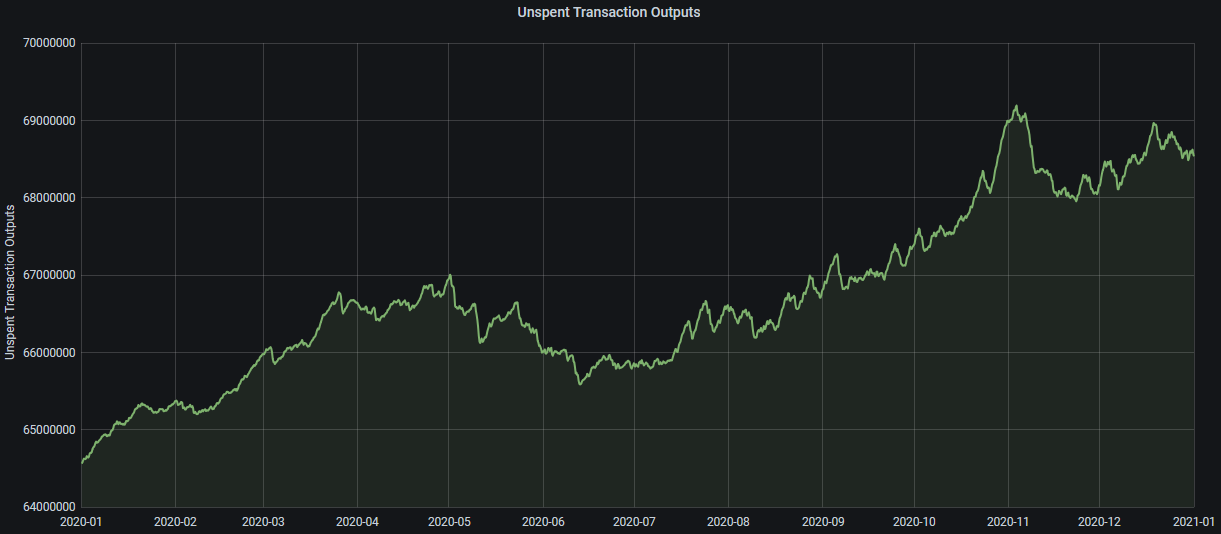
How Many Users Does Ethereum (ETH) Have?
It’s impossible to know the exact number, but the latest estimates guess that there are around 10 million users of Ethereum.
How Many Users Does Dogecoin (DOGE) Have?
Thanks to billionaire & Tesla founder Elon Musk, Dogecoin has gained a lot of users and a large market capitalization. Dogecoin has at least one million users.
Which Countries Have Banned Bitcoin Users?
Bitcoin is a controversial asset to many, especially those in office. One of the most precious powers a government holds is the ability to print money.
This article attempts to document the ever-changing list of countries that have banned and unbanned (and sometimes banned again) Bitcoin throughout the years.
China
Bitcoin has been ‘banned’ in China several times.
The first came in December of 2013 when the People’s Bank of China decided to ban Bitcoin due to its associations with the illegal drug and gun trade.
Eventually this ban was lifted.
That is until January of 2017, when Bloomberg and the Wallstreet Journal indicated that Chinese regulators would halt all trading of the virtual currency.
While this never totally materialized, the city of Shanghai did halt trading in cryptocurrency exchanges in the city.
Russia
Russia has never formally banned Bitcoin.
It did however issue warnings in February of 2014 to those exchanging it.
The warnings essentially said that exchangers would be kept under suspicion of money laundering and terror financing if they continued operations. The citation also mentioned that in Russia, it is a crime to compete with the Ruble as a «money substitute».
In Russia, there is no room for both Bitcoin and the Ruble.
Russia has never formally lifted these citations, but exchanges and mining companies do continue to operate in the country to this day.
Thailand
In July of 2013, Bitcoin Co, a Thai-operated Bitcoin exchange petitioned the Thai government for a money exchange license in order to continue operations.
The governing body making this decision denied Bitcoin Co’s request for the license, saying that Bitcoin is not a currency. The board allowed Bitcoin Co to present their case that Bitcoin is currency and to potentially have their application re-evaluated.
Shortly after the appeal was granted, the Central Bank of Thailand issued a preliminary ruling that using Bitcoins in the way described by Bitcoin Co was illegal due to a lack of existing laws.
It is unknown if there have been any developments legally speaking, however there are exchanges operating in Thailand right now and there appears to have been no repercussions to users buying Bitcoin so long as the exchange registers for a Business Development Department e-commerce license
Bitcoin is not currently banned in countries like the USA, Canada, UK, Australia, etc.
Источник
12 Best Bitcoin Wallets to Store Your Coins Safely
In this article we present the best Bitcoin wallets, for ultimate security and convenience.
Bitcoin is only truly yours if you know how to store it!
Sure, buying Bitcoin and leaving it on your exchange wallet is one option, but then you are never in full control of your funds.
In this article, we will show you the best Bitcoin wallets on the market and help you select the one that best suits your needs.
After reading this post, you will know what makes a great wallet and it will be easy to make your final choice.
What is a Bitcoin wallet
A Bitcoin wallet is a software program that allows Bitcoins to be stored.
Each time you buy Bitcoin, the platform or individual you buy your coins from, will ask for the address of your Bitcoin wallet. There are many different wallet options, which we will discuss below but for now, let’s see how a Bitcoin wallet works.
How a bitcoin wallet works
Most people assume that their coins will be sent and stored inside of their digital wallet, much like you would store paper bills in your physical wallet. In this case, however, the truth is a little bit different.
You see, when observed from a more technical point of view, Bitcoins are not really “stored” anywhere. When you create a crypto wallet, you essentially create a secure “access points” for a specific coin balance.
A Bitcoin wallet consists of two codes:
- A private key, which allows wallet owners to access and use their Bitcoin balance.
- A public address, which allows wallet owners to receive or request Bitcoin to the wallet.
Both of these keys are shown in long, alphanumeric codes, that are randomly generated and make each wallet completely unique.
As such, and to be more precise, Bitcoin wallets give you ownership over a certain Bitcoin balance. The proof of ownership is possible thanks to blockchain technology, which removes the danger of double spending and makes every transaction fully transparent.
How to choose the best Bitcoin Wallet?
Now that you have a better understanding of how a Bitcoin wallet works, it’s important to differentiate the different categories of wallets. Generally speaking, there are four main categories:
- Online wallets, which allow your funds to be stored online. These are convenient, easy to access from any device and make Bitcoin transfers very simple. Online wallets are also often referred to as mobile wallets since they also come in the form of an app.
- Desktop wallets, if you prefer to store your funds on a single device. These are more secure than online wallets and turn your PC into a security vault.
- Paper wallets, if you rather store your funds offline. When using a paper wallet, you simply use a printed version of your keys to store your funds away from any digital device.
- Hardware wallets, if you want maximum safety and secure transactions. Hardware wallets are the most popular option, thanks to their physical nature and manual authorization.
1. Best online wallet – Blockchain.com
Choice of coins: 5
Access: Mobile and Web
Operating system (for mobile): Android & iOS
Blockchain Wallet is one of the most popular Bitcoin wallets currently available. Ever since 2011, the wallet has been offering secure storage options for both Bitcoin (BTC) and Ethereum (ETH) investors. In recent times, the wallet has also created support for BCH, XLM, and PAX.
So what makes this wallet unique? Let’s dig into the nuts and bolts.
What can you do with Blockchain wallet?
The wallet offers several benefits for their users, whether those are functional or aesthetic in nature:
- You are able to login to your wallet by simply entering a 4-digit pin code , much like you would access the bank account app. If you worry about security, you have the option to add more layers of security, such as 2-step Verification, fingerprint lock or an additional password.
- Check the value of your funds in your local currency . Aside from that, a pie chart will indicate the distribution of your funds so you maintain a clear overview of your investments at all times.
- Buy and sell coins directly from the wallet. When you create a new wallet you will be able to go through KYC to whitelist your wallet. Once that is done, you will be able to purchase and sell cryptocurrency directly from your wallet app.
- Send crypto with one click. A handy QR code logo on the top-right corner of the screen will allow you to send funds to any QR-based crypto wallet in seconds.
- Use as an online wallet or mobile app. You can access your wallet by logging in on blockchain.info or download the app directly on your phone
How to create a blockchain.com wallet
Check this video to better understand the process required to create your online Bitcoin wallet:

2. Best desktop wallet – Armory
Choice of coins: 1
Access: Desktop
Operating system: Windows/Mac OS/Linux/Ubuntu/Debian
There are many desktop wallets but only one has captivated our hearts. Armory offers the highest level of security when it comes to Bitcoin desktop wallets. It is more aimed towards advanced users and institutional investors that deal with larger amounts of money, but can also be used by anyone else.
What makes Armory the best option?
- Offline storage options , which are pioneering s far as security is concerned. You are able to create your wallet while offline and ensure that your funds are safely stored.
- Multi-signature transactions , for additional security. In simple words, the wallet owner cis able to appoint a second person as an additional confirming party before the funds are transferred.
- GPU-resistant wallet encryption. Armory uses what is more commonly known as the “key-stretching” method. This requires an amount of computing memory that is small for regular processors, but too big for a GPU.
- The wallet is open-source. Armory was built with developers in mind. As such, it makes a great base for building Bitcoin applications, like crowdfunding platforms or exchanges.
How to set up your Armory wallet
Follow this guide to get a better understanding of the steps required to set up your desktop wallet:

3. Best Hardware wallet – Ledger Nano S
Choice of coins: 1250+
Access: Ledger device
Operating system: Windows/Mac OS/Linux
Hardware wallets have become very popular over the last few years. This is not because of their pocket-sized shape, but also due to their high level of security. Among the top options, one wallet stands out, even though it’s not the newest in the market. We are talking about the Ledger Nano S , one of the first and Best Bitcoin wallets.
Bellow, we will explain the key factors that made us choose the Ledger above any other hardware wallet option.
Why should you choose a Ledger Nano S?
- Provides the highest level of security. All ledger products are built with a certified secure chip and a custom OS to provide the highest level of security.
- Supports more than 1250 cryptocurrencies , including Bitcoin. Ledger wallets support all the popular cryptocurrencies as well as all ERC-20 tokens.
- Convenient management with the Ledger App. Download and use Ledger Live together with your wallet to check your balance or exchange your cryptocurrencies.
- It is the most popular hardware wallet on the market. With more than 1,500,000 units sold, Ledger Nano S wallets are the most popular hardware wallets in the market.
Setting up your Ledger Nano S device
The following video takes you through the process of setting up your Ledger Nano S:

4. Best Paper wallet – Bitaddress
Choice of coins: 1
Access: N/A
Operating system: N/A
As mentioned above, this type of wallet is essentially a sheet of paper that contains both your private key and public address. Paper wallets are often printed in the form of QR-codes so that you can quickly scan the address and make a transaction. There are many different services that are used for this particular purpose, but the one we prefer to use is Bitaddress . The website allows users to generate random Bitcoin addresses, each with unique private keys. Once created, these wallets need to be printed and stored securely to ensure the safety of one’s funds.
What makes paper wallets worth considering
- Great for HODLers . Many people are often drawn away from paper wallets due to their relative complexity when it comes to transactions. If users want to send some of their funds they will first need to transfer the whole content of their wallet into another wallet (that allows users to send specific amounts of their Bitcoin). However, this can also act as an advantage. Being unable to transfer small amounts of funds while holding funds into a paper wallet makes users hold onto their Bitcoin unless selling is absolutely necessary.
- Creative security. When you create a paper wallet, only you are responsible for its security. Some people will choose to laminate the paper and store it into a secure location. Others will implement a strategy known as sharding , to make things even safer. Overall, it’s best that you have at least some sort of strategy when it comes to the storage of your paper wallet.
- Budget-friendly. If you are looking for hardware wallet-grade security but don’t have the funds to afford one, you can consider using a paper wallet. Both options store one’s funds offline and ensure 100% protection from any type of hacking attempt.
Creating a paper Bitcoin wallet
Ready to create your paper wallet? Then follow the steps shown in the video below:

Other great contenders for the title
- Trezor One – The Trezor One follows Ledger Nano S very closely in being the best hardware wallet. You can check its features by checking out this page .
- KeepKey – Shapeshift’s very own hardware wallet is both stylish and very secure. If you are looking for an alternative to the most popular choices, this is the one to consider.
- Exodus – This desktop wallet has a stylish design and is a very popular option to store Bitcoin. However, it is not able to store funds offline or offer the multi-sig option.
- BitcoinPaperWallet – BitcoinPaperWallet is the second most popular paper wallet. The reason we did not choose it as our top option is that most guides and tutorials on the web use Bitaddress as an example. This would make BitcoinPaperWallet a little harder to understand by beginners.
- Coin Wallet – Being the best online wallet option on Bitcoin.org, Coin Wallet is certainly no new player. This online wallet is as simple as it goes but offers everything you need to store your funds online safely.
- Electrum – This desktop wallet allows you to print a set of your recovery keys and turn a simple wallet into a super-safe vault. It is also very easy to use and fully encrypted.
- Mycelium – A mobile-only wallet that allows users to exchange and buy/sell cryptocurrencies. As their website suggests, their wallet provides bank-grade security.
- Atomic – This peer to peer, non-custodial, crypto wallet supports more than 2000 cryptocurrencies. Atomic offers a simple dashboard that helps users manage, exchange and buy Bitcoin without the need of any other third party.
Which of the best Bitcoin wallets should you pick?
Still can’t find the perfect Bitcoin wallet?
We got you covered.
Just buy this one – Ledger Nano S
Not only does the wallet provide the best possible security against hacking attempts but it is also very easy to use for all types of transactions. On top of that, being able to store 1250+ coins, makes this wallet a one-stop solution for all your cryptocurrency storage.
That being said, we do believe that the rest of the options are excellent as well.
Armory is certainly one of the most secure wallets in the market and Blockchain wallet is the go-to choice for new investors. We suggest you experiment with each option and see what works best for you.
Wrapping up
In this article, we took a look at 10 different Bitcoin wallets and emphasized on the top options of each category. Here are the top 4 wallets we looked into before picking our eventual winner:
- Blockchain.com Online Wallet
- Armory Desktop Wallet
- Ledger Nano S Hardware Wallet
- BitcoinPaperWallet Paper Wallet
Our general winner was none other than the Ledger Nano S . However, keep in mind that this is simply our opinion. It is best to test all the different options and find what works best for you.
Best Bitcoin wallets – Frequently asked questions
What is a Bitcoin wallet address?
A Bitcoin wallet address is also known as a public key. This key is can be found in any type of wallet when you want to send money to your wallet or request funds. The length of each wallet varies, due to their encoding, but you will always recognize them from their appearance – a random combination of letters (upper and lower case) and numbers.
What is a Bitcoin wallet private key?
A private key is similar to a password used to enter your account. It helps users access their account so they can send their bitcoins to others. Similar to public keys, this address is a random combination of letters and numbers.
What are the cheapest Bitcoin wallets (hardware wallets)?
Hardware wallets can get quite pricey, especially when you are a new investor. For that reason, you can choose one of the following budget options.
- Ledger Nano S ($65 for one device)
- Trezor One ($65 for one device)
- KeepKey (10$ for one device – Requires membership on Shapeshift )
What is the safest and most secure Bitcoin wallet?
Due to their purpose, all Bitcoin wallets come with a high level of security. However, some come with additional layers of protection and store your funds offline (cold wallets). These wallets are the best ones to consider when it comes to safety. Here is our top 3:
All the above wallets store your funds in Cold Storage. This means that there is no possible way for your wallet to be hacked by anyone.
Are Bitcoin wallets safe & secure?
Yes. Bitcoin wallets are created to help users store their funds in safety. When using one of the wallets suggested above, you can rest assured that your Bitcoin is safe. Of course, as aforementioned, some wallets are better than others. For that reason, if safety and security are your highest priority, it is best to not use online/mobile wallets.
Which Bitcoin wallet has the lowest fees?
The only wallets that will charge fees when sending or withdrawing your Bitcoin are exchange-based wallets. Therefore, it is best to not store your coins on any platform. The wallets we compared above do not charge any fees. The only amount you need to pay in addition is the transaction fee, which is paid to miners in order to confirm your transaction.
Why does my Bitcoin wallet contain multiple addresses?
As aforementioned, some Bitcoin wallets act simply as keys to your funds. A hardware wallet, for example, will allow you to access your funds from different Bitcoin wallets, all of which are created with the help of your device. Splitting your funds over multiple addresses is also a great practice to ensure that your wallet does not become a target for cyber-criminals.
Can a bitcoin wallet be hacked?
With the progression of technology, there is always a chance that Bitcoin wallets can get hacked. This is why most wallets offer additional security layers. Hardware wallets will also update their hardware from time to time, in order to ensure the safety of your funds.
The wallets that are most often hacked are online wallets. This is because users often use the same password they use for other accounts (social media profiles, email) and do not enable any additional security measure.
Can Bitcoin wallets be traced?
Yes, but with a certain limitation. As of now, there is an active effort by all exchanges and online wallet providers to “whitelist” Bitcoin wallet addresses. This means that the address of your wallet will automatically be linked to your name and personal information. However, as of right now, most wallets are still only recognized by their public key, and there is no further information on their owners. This offers a relative level of anonymity.
How can you create a Bitcoin wallet?
For online wallets, please follow this tutorial (Blockchain.com wallet).
For Desktop wallets, you can check this video guide .
If you own a hardware wallet, check Ledger and Trezor tutorial.
And for paper wallets, click here to see the steps.
Источник
